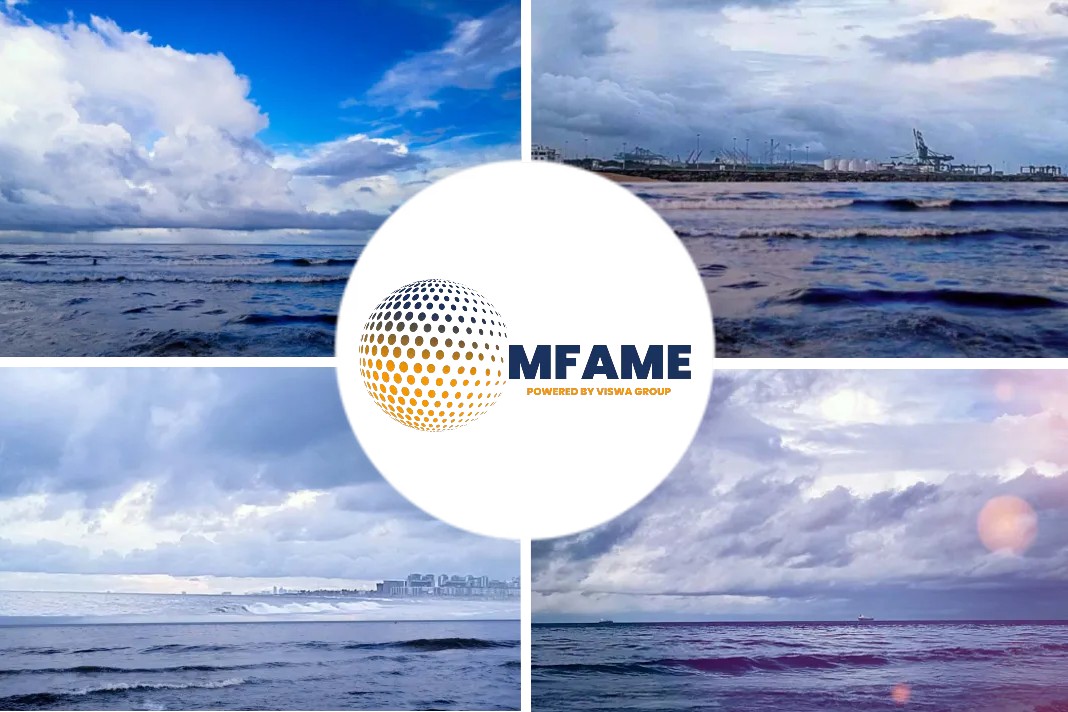- Platts Analytics sees spread hitting scrubber installations this year
- Shipping companies stalling and canceling scrubber installation plans.
- the narrowing price differential between HSFO and VLSFO is the primary concern.
- At the current oil spread rate, it will take 4 years to pay off scrubber investment
- Experts advise holding on your nerve as long term scrubber benefit overrides these short term price jitters.
- Scrubber conquers the uncertainty over VLSFOs
Long-term logic at odds with near-term price squeeze on the fuel price spread
The gap between those voicing the merits of scrubber economics longer-term and shipowners’ appetite to install them is growing ever wider as oil prices continue to hit fresh lows, reports Platts.
Scrubber Costs Affecting Companies
Shipping company Stolt-Nielsen just last week said it plans to cancel installations of gas exhaust cleaning systems where possible as it looks to find savings of $30 million in capital spending in its tanker division.
The upfront cost of scrubbers is particularly high for a shipping industry hit by tough credit conditions and weaker global trade with the coronavirus pandemic having sent most of the globe into lockdown and Brent crude below $20/b.
Shippers Re-evaluating Scrubber Investments
Scrubber maker Wartsila struck a downbeat tone over the ship fuel cleaning equipment this week. “The decline in marine order intake was largely due to the lack of scrubber investments, as fuel spreads have narrowed,” Wartsila CEO Jaakko Eskola said, adding “the risk of weakening economic activity has caused shipowners and operators to re-evaluate their investment plans.”
Scorpio Tankers also said they are looking at deferring scrubber retrofits to take advantage of the current market strength, even though the scrubber program continues to make progress, according to Jefferies in a research note Wednesday.
Oil Spread Blow
Shipowners have deliberated over ways in which to comply with the International Maritime Organization’s sulfur cap rule that came in at the start of the year, either through cleaner premium fuels, or keeping the dirtier bunker fuel know as high sulfur fuel oil and using scrubbers to remove the additional sulfur.
A key indicator into payback economics, the pricing differential between 0.5% and 3.5% bunker fuel, has narrowed considerably in recent weeks over the pandemic.
- In Northwest Europe, the differential for the delivered bunker fuels at Rotterdam was assessed at $51/mt Monday and $56/mt Tuesday, having reached new records lows of $38/mt the previous Wednesday.
- Oil demand has collapsed globally, prompting declines for 0.5% sulfur bunker fuels while prices for 3.5% bunker fuel have retained some buoyancy partially due to its relative tightness in the bunker pool.
- These combined factors have narrowed the differential between the two grades by more than 80% since the start of the year, when it was assessed at $296/mt.
Longer Pay offs?
“Considering today’s $50/mt spread, we believe that a VLCC being retrofitted with a scrubber will now take over four years to pay off the investment if fuel prices remain at today’s levels, a significant gamble for the owner,” analysts from tanker market intelligence company Alpha Tanker said in a note.
The research also suggested that owners of bulkers or liners struggling because of the global downturn are also cancelling scrubbers as they strive to cut costs. “We fear that this is just the tip of the iceberg and as the global recession intensifies during the second quarter, this drip of cancellations could turn into a flood,” Alpha Tanker said.
Scrubber Interest Resilient
Wartsila told S&P Global Platts last month that interest in scrubbers has and will remain resilient, despite customers questioning the financial case when the spread between VLSFO and HSFO is below $50/mt. Wartsila’s director of exhaust gas cleaning systems Sigurd Jenssen said: “From customers we hear in their calculations, the spread somewhere between $50 and $100 /mt provides an interesting investment case for them, so as long as it is in that range scrubbers are still attractive. If it goes below $50/mt then it is a bigger question.”
Asian pattern
In Singapore, the world’s largest bunkering port, the HSFO-VLSFO price differential has also narrowed sharply, as has been the case in some other ports in Asia.
The spread between Singapore delivered Marine Fuel 0.5% fuel and Singapore delivered fuel oil 380CST has shrunk from an average of about $298.90/mt in January to around $107.70/mt in March, Platts data showed.
The number of scrubbers in operation at the start of the year was 2,200, Alexander Yap, senior analyst at Platts Analytics, said.
“Platts Analytics previously projected 3,500 scrubber installations globally by the start of 2021, but this will likely not be met with disruptions from coronavirus and cancellations due to the narrowing price spread between high and low sulfur fuel,” he added.
However, some have said that it is not prudent to look at the short term viability of scrubbers as they were still a favorable solution in the long run.
A shipowner source in Asia said his company was still going to install scrubbers despite the challenges it entailed.
Don’t Dwell On Price Differential
“Given the unprecedented circumstances we all find ourselves, we should not dwell too much on the narrowing fuel price spread,” Ian Adams, executive director, Clean Shipping Alliance 2020, said in a statement last month. “The use of exhaust gas cleaning systems, or scrubbers, avoids the uncertainty surrounding the quality and availability of VLSFO.”
“Investors in scrubbers know what they are doing financially, buying themselves a device that cuts fuel cost permanently… the device will likely return the investments many times over,” BIMCO analyst Peter Sand said.
While the long-term logic may still exist, the current price squeeze in the near term is causing many to lose their nerve
Did you subscribe to our daily newsletter?
It’s Free! Click here to Subscribe!
Source: Platts



















